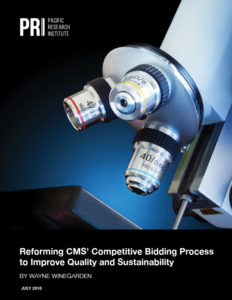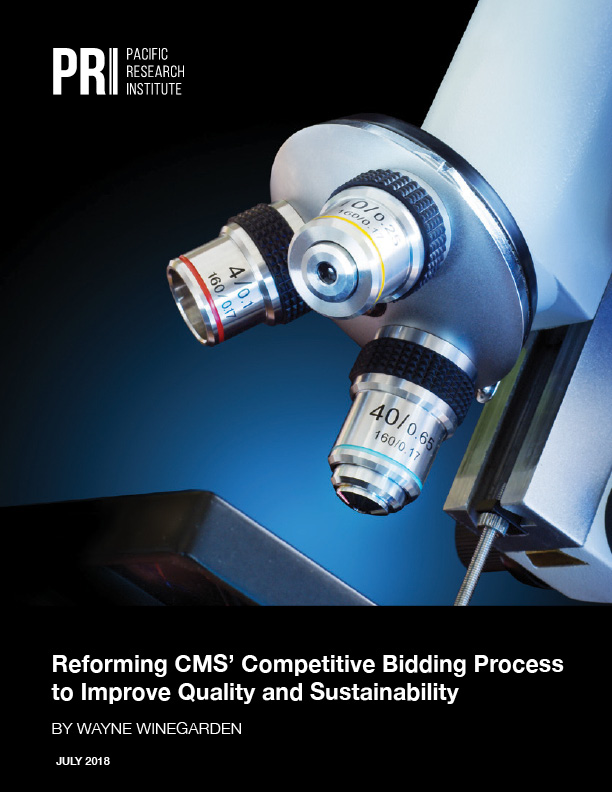 Proposed reforms to the Medicare competitive bidding process for wheelchairs, home breathing equipment, and other durable medical equipment underscore the findings of a recently-released Pacific Research Institute study showing that patient health is being negatively impacted by an inefficient system plagued by low provider payments and lack of access to necessary equipment.
Proposed reforms to the Medicare competitive bidding process for wheelchairs, home breathing equipment, and other durable medical equipment underscore the findings of a recently-released Pacific Research Institute study showing that patient health is being negatively impacted by an inefficient system plagued by low provider payments and lack of access to necessary equipment.
Click here to download a copy of the study.
“The proposed Medicare bidding reforms underscore the obvious – the current bidding process hurts patients by denying them access to supplies and equipment they need to lead healthy lives,” said Dr. Wayne Winegarden, author of Reforming CMS’ Competitive Bidding Process to Improve Quality and Sustainability. “Diabetes patients shouldn’t have to wonder whether they will receive testing supplies, and COPD patients should not have to worry about whether they’ll get home oxygen when needed due to an inefficient government bidding process.”
The Center for Medicare and Medicaid Services (CMS) recently proposed market-oriented reforms to fix the current bidding process.
In 2011, CMS replaced the fee schedule to pay suppliers of durable medical equipment like wheelchairs, prosthetics, and orthotics, and supplies for diabetes testing and other illnesses, to Medicare patients with a competitive bidding process.
However, the new process has led to a new set of problems, including low-ball bids, bid skewing, lack of sufficient supply, and reduced quality.
Payment amounts are now derived from the median of all winning bids for an item. A 2016 survey found that suppliers were being reimbursed at 88 percent of overall costs, making this process unsustainable. There is also no requirement that a winning vendor must fulfill its commitment. Instead, they have the right to review the median bid and decide whether to participate. This has led to reduced supply.
Winegarden notes the example of diabetes patients, who rely upon the right testing supplies and equipment to manage their disease. He reported a survey showing that, under the competitive bidding program, Medicare suppliers were not offering most of the products that Medicare.gov said would be available. Lack of access to the right testing equipment and supplies puts their health at risk.
There is also a problem with lack of available of home oxygen equipment under the competitive bidding program, which can negatively impact the health of patients with chronic obstructive pulmonary disease (COPD). Winegarden cited a survey that found that those who start oxygen treatments within two months of diagnosis have health care costs that are 20 percent lower than those who start treatment later.
Winegarden recommends that further reforms be adopted to ensure an efficient competitive bidding process by setting payments at the market clearing price – or the lowest possible price that ensure adequate supplies are available. He also recommends that the bid process be made more honest by encouraging vendors to submit bids that reflect their actual cost structures.
Dr. Wayne Winegarden is a Senior Fellow in Business and Economics at Pacific Research Institute. He is also the Principal of Capitol Economic Advisors and a Managing Editor for EconoSTATS.


